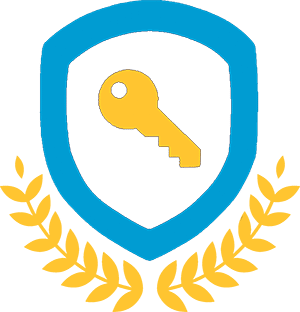Why Should I Hire a Consultant if I’ve been charged with a crime?
If authorities charge someone with a crime, life changes. The individual becomes “a defendant.” And as a defendant, stakeholders and the system will view the person differently. The concept of being innocent until proven guilty sounds feels more like a myth than a reality.
The defendant will need a lawyer. Defendants who lack financial resources will find a public defender. Other defendants will hire an attorney. The lawyer will advise the defendant on how to proceed, and the lawyer will navigate a judicial system that seems foreign to the defendant. There will be pretrial motions, arraignments, decisions on how to plead, discussions of trial, preparations for sentencing, and many other proceedings that will be difficult to grasp. Defendants will need to make difficult choices.
An opportunity cost will come with every choice. Some lawyers will bring in consultants to help defendants make those choices. For example, lawyers may bring in jury consultants. Lawyers may hire forensic accountants. Lawyers may want public relations consultants.
Why?
A consultant may have more expertise than the lawyer in a given area.
Likewise, a defendant may choose to hire a consultant to prepare for the entire process. That consultant can help if he is honest and has experience. A consultant should provide insight to helps defendants make better choices.
People who do not have experience with the criminal justice system may find value in the guidance an honest consultant can provide. But when hiring a consultant, the defendant should have a clear understanding of what they will receive.
Consultants can be particularly helpful for defendants that struggle with any of the following challenges:
- Understanding of the criminal justice system.
- Not knowing how to assess the attorney.
- Not knowing how to ease the workload of a public defender.
- Not knowing how to communicate with the lawyer.
- Not knowing how early decisions influence the process or the outcome.
- Not knowing how steps they can take today to build a better outcome.
Ask Better Questions
An effective consultant will help a client ask better questions. Those questions should lead to more information. The client can use the new insight to make informed decisions. We strengthen ourselves when we make decisions from an informed position.
Some decisions will lead a defendant down one route. Another decision can send him down a different trek. Learn!
For example, what if a defendant chooses to plead not guilty? What should the defendant know?
How much money does the defendant have to fight the case?
How will the trial influence other members of the family?
How would a trial influence the sanction if a jury finds the defendant guilty?
What toll will the trial take on a defendant and the defendant’s family?
What if the defendant pleads guilty?
What steps can the defendant take to influence the outcome?
What mitigation steps can the defendant begin taking today?
What steps can the defendant take to qualify for alternative sanctions?
How can the defendant preserve assets?
How can the defendant prepare for a career upon release?
How will the defendant oversee business interests?
What does the defendant know about preparing for sentencing?
Every decision has a result. Defendants would be wise to prepare. Consultants can help the defendant prepare.
Case Study: Harold
Those who have an interest may want to learn from the story of my friend Harold. Harold was a director of investments at Fidelity. Authorities charged Harold with a crime related to securities fraud. Basically, Harold used privileged information to engineer a trade in a foreign market. From Harold’s perspective, his trade did not violate laws in the foreign market. The government disagreed. A grand jury indicted Harold for securities fraud. In the beginning, Harold could have entered into a plea agreement that would have led to probation.
Harold had a Ph.D. in applied mathematics. But he never had problems with the criminal justice system. He didn’t understand the nuances of a prosecution. He didn’t know a thing about sentencing. He didn’t know how to prepare for prison. Unlike his preparations for business and his career, where he made decisions from a position of strength, Harold didn’t know how to assess his problems with the judicial system. He made decisions from that uninformed position. As a result, Harold spent far more money than he had to spend. He served more time in federal prison than he should have served.
Pleading Not Guilty:
Harold had money to hire high-profile lawyers. The cost did not concern him. He intended to fight, though he didn’t consider all options.
That’s the type of client any defense attorney wants. Harold sent a $1 million retainer to his lawyer. The primary lawyer began billing against that $1 million. His rate was $1,200 per hour. Associate lawyers billed out at more than $500 per hour. The billable hours grew each day.
The law firm suggested a strategy to influence jury pools. They suggested Harold hire writers to publish articles. The firm billed Harold tens of thousands to publish each article. Then, the law firm researched trial strategies. It hired jury consultants and held three mock trials.
Within a few months, the law firm burned through Harold’s retainer. Then the lead lawyer urged Harold to accept a plea agreement of 18 months.
Harold regretted his decision to go to trial. He didn’t understand options. A consultant may have helped Harold ask better questions. The insight may have helped Harold consider other options. He neither understood the nature of a prosecution, nor did he understand how to assess his lawyers. Were they doing a good job—or billing more hours?
Anyone charged with a crime would be wise to learn. Learn more about prosecutions, sentencing, and prison. A competent prison consultant should be able to help.
The next article will offer some insight on how to hire a consultant.

